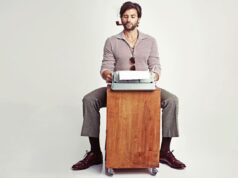Unless you live somewhere like New York City or another dense urban city with excellent public transportation, chances are you’ll need a car to get to work, school and other locations. When looking at your different options, you might wonder if it is worth it to lease or buy a car. Both leasing a car as well as buying a car can be right for different people in different situations. Understanding the pros and cons of buying vs leasing a car can help you make the right decision for your specific situation.
How to lease a car
When you lease a car, you’re not actually purchasing the car at all. The lessor (usually the car dealer) maintains the car title and complete ownership of the car throughout the term of the lease. When leasing a car, you will often put down some money upfront, and then make regular monthly payments for a period of time (often 36 or 48 months). The amount of the monthly lease payment will depend on the car’s expected value at the end of the lease term.
How to buy a car
Buying a car vs leasing a car is different in several ways — as the name suggests, you are actually taking ownership of the car. If you have a car loan, then the lender will hold the actual legal title until the loan is paid off, but you are still responsible for it like anything else you own.
Conventional wisdom says that the best time to buy a car is in October, November and December. That is usually when most car dealers get their inventory for the new year. So there are incentives for all of the new cars, as well as deals on last year’s model as the dealers try to clean out their inventory. As with most major purchases, you’re likely to do better if you set a budget, know what you’re looking for and shop around to multiple different dealers.
Buying new vs. used
One of the things to keep in mind when you’re saving for a car is to decide whether you want to buy a new or a used car. There are advantages to both buying a new car and buying a used car, and which one is right for you will depend on your specific situation. Buying a new car is usually more expensive, and due to depreciation your car will lose value the moment you drive it off the lot.
On the other side, interest rates on new cars are often lower than the rates on used cars, so if you’re financing your purchase, that is something to keep in mind. You will also likely have less maintenance with a new car as compared to a used car, especially if the used car is several years old. When you’re buying a new car, you also have the ability to shop around to different dealers, as compared to buying a used car when every car is different, making it harder to shop around. These are all things to keep in mind as you decide between buying new and used.
When is it worth it to lease a car?
Leasing a car doesn’t make sense in most situations, since you make monthly payments throughout the term of the lease and then end the lease with nothing to show for it. At the end of the lease, you can either walk away from the lease with no penalty, or you can arrange to buy the car at its current price. Another downside to leasing a car is that it may be hard for someone to take over your lease if your situation changes. One reason it might be worth it to lease a car is if you’re someone who wants to always drive a new car and is willing to accept the extra cost that comes with it.
When is it worth it to buy a car?
If you’re looking at buying a car, there are a few factors that you’ll want to keep in mind first. Ideally, you will have saved up enough money to make a substantial down payment or even be able to pay for the car in cash. While it is rarely a good idea to buy a very old car, you do want to be mindful of keeping to your budget. Even if you have the money to buy a car that is 10+ years old in cash, it may make more sense to use that money as a down payment to buy a newer car, since you may save on maintenance costs.
The Bottom Line
When deciding how to acquire your next car, you’ll want to carefully examine the pros and cons of buying vs leasing a car. While leasing a car may come with cheaper monthly payments, remember that at the end of the lease you walk away without a car and will have to start the process all over again. When looking at buying a new or used car, consider the total cost of ownership over the length of time you are likely to keep the car as one factor to help decide which might be right for you.








